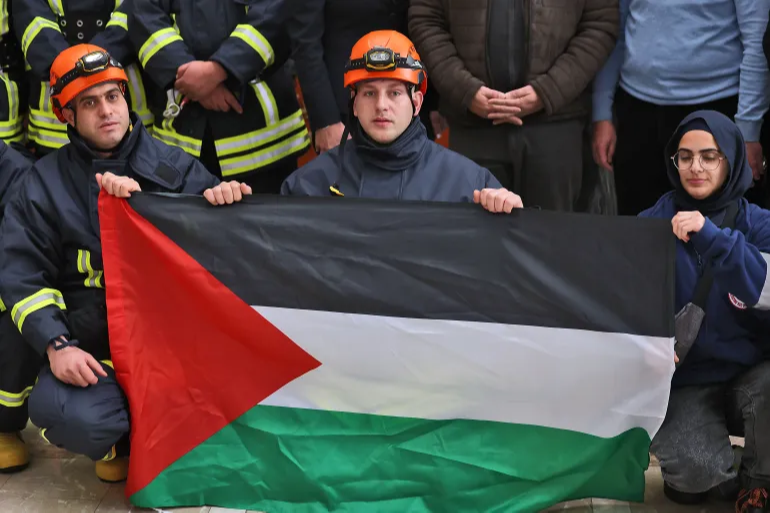A Palestinian aid team is joining the international emergency response in Turkey and Syria, as rescue efforts to locate and extract survivors from the rubble intensify. Seventy-three rescuers, led by the Palestinian International Cooperation Agency (PICA), packed softshell jackets displaying the logo of their organization into red duffle bags on Thursday, before boarding a bus at the Palestinian Ministry of Foreign Affairs in Ramallah.
The team will be travelling to Jordan, where it will divide equally into two groups headed to southern Turkey and northwest Syria. Emad Zuhairi, head of PICA, said that despite growing needs at home, his team could not but respond to the call for help. “It is because we are suffering that we feel for the suffering of others,” Zuhairi told Al Jazeera.
The team included rescuers from the Palestinian Civil Defence, the Ministry of Health and the Palestinian Red Crescent Society. Established in 2016, PICA has participated in various rescue operations abroad – most recently in Pakistan, following devastating floods. Its mission is expected to last 10 days but could be extended according to need.
Aftershocks have continued to rock the Anatolian Peninsula since the first pre-dawn quake on Monday while rescue operations were under way, threatening to knock down battered buildings, as well as the burgeoning piles of rubble.
Zuhairi said his team was aware of the many difficulties going into such a mission. “To this, we add the restriction that the occupying power imposes on the free circulation of people and goods,” he added.
Israel controls border crossings in and out of the occupied West Bank, making it necessary for Palestinian rescue teams to coordinate with the Israeli government. “We would have loved to bring with us some heavy equipment, but unfortunately, this is not possible,” he said. Instead, the team will be using individual kits containing only essential equipment.
Brigadier Odeh Yunis, from the Palestinian Civil Defence, said the organisation was sending 32 people from among its ranks to respond to the “catastrophe.”
Their main mission was to extract people from under the rubble and provide medical assistance to the injured, Yunis said. His office was also planning a response to potential local earthquakes after the Palestinian territories recorded a magnitude-3.5 tremor. “Due to the Israeli occupation, we do not have direct borders with the international community,” he said. “We are working with our colleagues from the European Union and in the region to arrange a response in case of a big emergency.”


